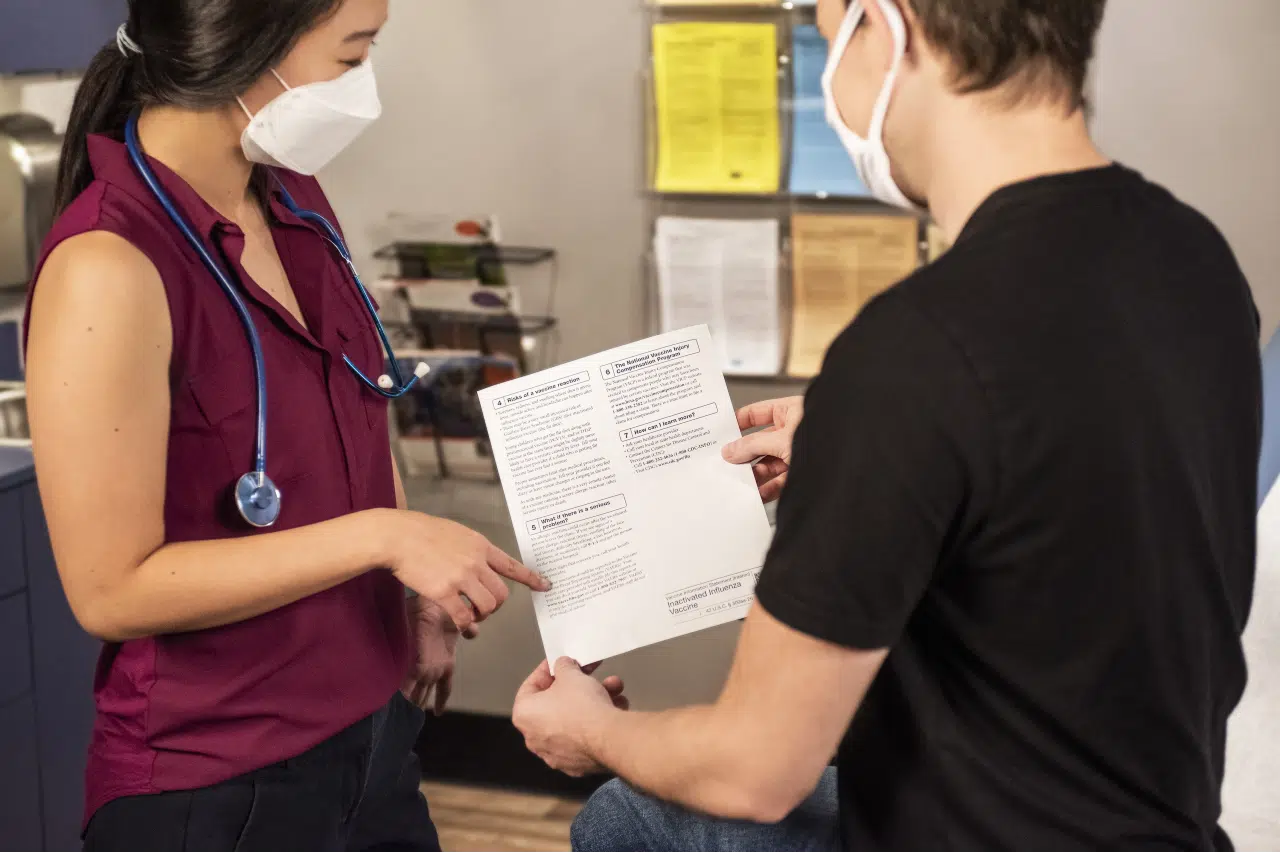(KNSI) – Minnesota’s COVID-19 cases have been on an upward trend over the past several weeks, and new hospitalizations come with that. Across the state on Wednesday, 676 people are hospitalized for COVID-19, including 193 in the ICU. In mid-March, COVID-19 patients needing hospitalization were in the single digits across CentraCare’s hospitals and clinics. Now, the health system is seeing between 50 and 60 patients needing care at a time, which COVID-19 incident commander Dr. George Morris says is a high number.
“We have certainly been feeling the effects of this surge for six or eight weeks now,” Morris said. “Our peak was, I think, 62. Today [Tuesday], having 51, in my mind means that we’re about level. … We’d like to see this as an opportunity to get things under control.”
The profile of Minnesotans hospitalized with COVID-19 has also changed. Earlier in the pandemic, Morris said more than 70 percent of COVID-19 patients were age 65 or older. Now that more than 80 percent of Minnesota’s seniors have gotten at least one vaccine dose, he says 60 percent of CentraCare’s COVID patients are below age 65.
“We’re seeing many more cases associated with schools, universities, young adults — the 20s to 30s seem to be the areas where we’re really seeing a lot more positive cases,” Morris said, which is in contrast to the various outbreaks among older Minnesotans in long-term care facilities last year. “Then it could be their parents or their relatives or their coworkers, their social group — now we’re talking 30s, 40s, 50s — that are ending up hospitalized.”
Though the average age of COVID patients has decreased, their needs for intensive care have stayed constant, with about 30 percent of hospitalized patients needing ICU care, Morris said. Plus, COVID-19 doesn’t always have a black-and-white outcome where a patient either fully recovers or dies. Morris said about 30 percent of people who have been hospitalized with a severe COVID-19 infection have lingering symptoms or complications.
“Lingering means anywhere from two to six months or even longer — years — of trouble breathing, shortness of breath, trouble with thinking, confusion, fogginess and difficulty with exercise tolerance,” Morris said. “It’s a post-viral effect. Once you get over the virus, the damage it can do will still linger.”
This is why, Morris says, health leaders and medical professionals have been encouraging people to get vaccinated for COVID-19 rather than try to achieve immunity by catching the virus.
Morris says the next several weeks are critical for getting new case numbers down so fewer people end up in the hospital. The way forward: vaccinations.
“The next four to six weeks are key, especially if we want to get back to an exciting, usual, fun, typical Minnesota summer,” he said. “We’re only about six weeks away from that. If we can spend the time now to get vaccinated, that means that it’ll be safer for us to do all of our usual activities.”
Central Minnesotans can sign up for a vaccination appointment through CentraCare online or by calling 320-200-3200. Other vaccination opportunities can be found through the state government’s Find My Vaccine website.
“We know that the vaccines are effective. We’ve seen that in our data and our experience,” Morris said.










